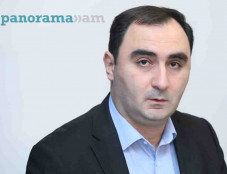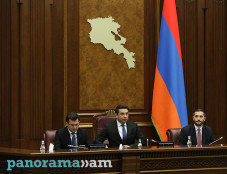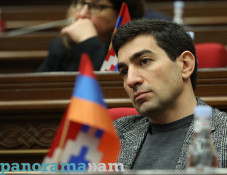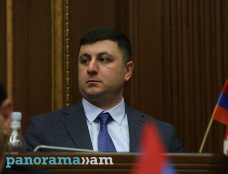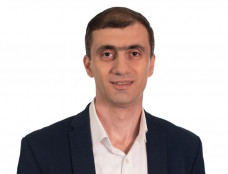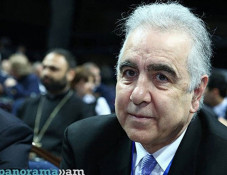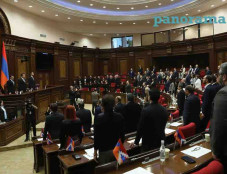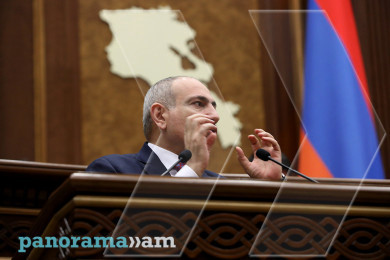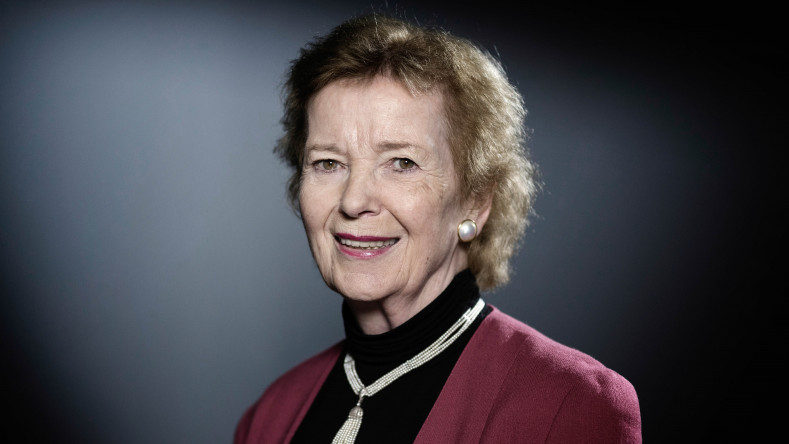
Opinion: COP29 host Azerbaijan escapes Munich Security scrutiny
EUobserver has published an article by Mary Robinson, former Irish President and UN High Commissioner for Human Rights, in which she claims that Azerbaijan, the host of the COP29 summit, escaped the Munich Security scrutiny. The full article is provided below.
"The Munich Security Report released this week is very thorough in outlining some of the most pressing challenges to international security, ahead of the annual conference.
However, there is a topic central to democracy that is missing from the report and fails to get the attention it deserves — that is the global struggle against unfair and fraudulent elections that persists today. This reality is glaringly evident in Azerbaijan's recent snap presidential election which unsurprisingly sitting president Ilham Aliyev won with more than 92 percent of the vote.
Aliyev expedited the recent presidential election from its originally scheduled date in 2025 to 7 February 2024, raising alarming questions about manipulation of democratic processes. The lack of transparency in this abrupt rescheduling creates concerns regarding a sitting president's power to manipulate electoral timelines.
President Aliyev's decision to hasten the election aligns with a calculated political strategy. Riding on a wave of increased popularity garnered from the government's recent seizure of the Nagorno-Karabakh region, Aliyev aimed to capitalise on the momentum and secure his continued grip on power.
This manoeuvre has precedent; it echoes past instances where the president altered electoral rules in his favour to maintain hold of the kleptocracy begun by his father decades ago.
In 2009, Aliyev removed the two-term limit for presidents, consolidating his hold on the presidency. Subsequent changes in 2016, including the extension of presidential terms from five to seven years and the lowering of the age requirement for candidates, hinted at a dynastic plan to ensure a seamless transition of power to his son in the future.
In another questionable move, Aliyev appointed his wife as the first vice president, consolidating familial control over the nation's leadership.
Aliyev's iron grip
The persistent grip of the Aliyev family on Azerbaijan's political landscape is further underscored by the suppression of fair election processes and respect for human rights.
Since his ascent to power in 2003, Ilham Aliyev has consistently stifled opposition and resorted to the imprisonment of over one hundred political opponents — as well as eight prominent former leaders of Nagorno-Karabakh following his administration's ethnic cleansing of over 120,000 ethnic Armenians.
It's no wonder why the six other candidates who ran "against" him in this recent election were not at all critical of his rule — in fact, praising him as a great statesman, leading to an election that "was not meaningfully challenged…[which] resulted in a contest devoid of genuine pluralism", as one observer from the Organisation for Security and Cooperation in Europe noted.
Further, the regime's disdain for a free press is evident in the stifling of independent journalism, with ongoing arrests of journalists who dared to expose corruption, particularly in the months leading up to the elections. Reporters without Borders ranks Azerbaijan 151st out of 180 countries in its World Press Freedom Index, reflecting a glaring pattern of suppression of free speech.
COP29
Despite claims of over 80,000 observers registered in the upcoming election, Azerbaijan's history of expelling observers, engaging in electoral fraud, and violently suppressing protests raises serious concerns about the credibility of its electoral process.
The Organization for Security and Co-operation in Europe (OSCE) cited in a statement "indications of ballot box stuffing…[that] raised serious questions about whether ballots were counted and reported honestly" in this month's election.
As the international community witnesses these ominous signs, it becomes imperative to address the egregious human rights violations perpetrated by the Aliyev regime. This is particularly critical as Azerbaijan will host COP29, the United Nations' important annual climate meeting that is slated to take place in the country later this year.
As thousands of businesses, climate and human rights activists and government negotiators prepare to descend on Baku this year, they must do so with a clear conscience and call on the host to address basic human rights which are a core attribute of the COP process.
Turning a blind eye to the regime's record of human rights violations is not an option. It is imperative that Azerbaijan respect human rights and an independent media, release all political prisoners, and conclude a peace deal with Armenia in the wake of its military action in Nagorno Karabakh. No less should be expected of the host of COP29."
Newsfeed
Videos





